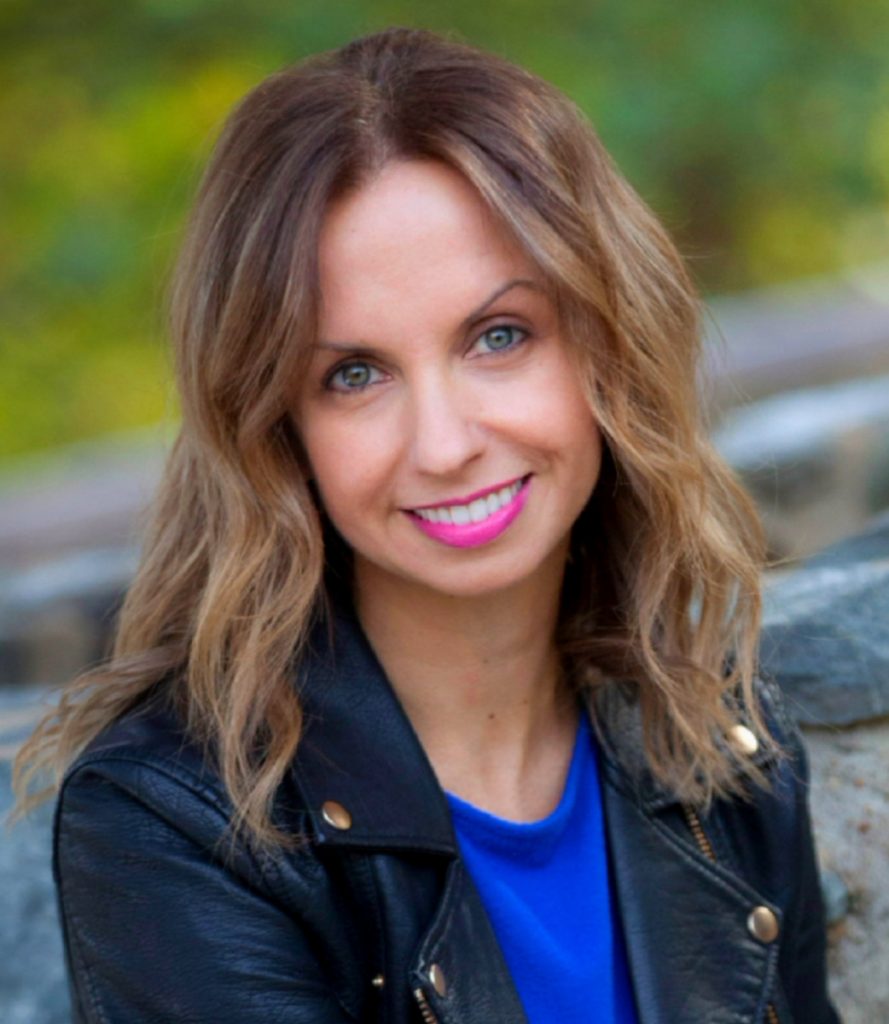SARA TOTH – EDITOR

Caty Borum Chattoo is not a comedian — but, she said, she was a funny kid. That funny kid from the South grew up to become an award-winning media producer and executive, working in Los Angeles with the likes of Norman Lear. And it was her work with Lear, Borum Chattoo said, that ultimately made her realize that, yes, her dreams could be a reality … and her work could help make others’ dreams come true, too.
“I had a decade working for a guy who would literally look at impossible things and say, ‘Let’s go make that happen,’ ” she said. “This man was wildly successful, but in his soul is this deep emotional feeler and believer in impossible things. … It’s rare to work for someone that makes you believe you can really create things out of thin air.”
Borum Chattoo is also a media scholar, and the executive director of the Center for Media & Social Impact (CMSI), a nonprofit innovation lab and research center housed at American University and professor at the American University School of Communication. So when her research led her to see the need for strengthening the pipeline for marginalized voices in the comedy world, she went ahead and did it.
Borum Chattoo is co-founder and co-director, in partnership with cultural strategy group Moore + Associates, of the Yes, … And Laughter Lab, a creative incubator of comedy for social justice.
At 10:30 a.m. Wednesday, July 28 in the Amphitheater, she’ll discuss the work of the lab (with the acronym YALL — she’s from the South, after all) as part of the Chautauqua Lecture Series’ Week Five theme “The Authentic Comedic Voice: A Week in Partnership with the National Comedy Center.”
“We needed an opportunity to diversify the entertainment pipeline for comedy, and to hear marginalized voices — women, people of color, LGBTQ, disabled — and we couldn’t sit around and wait for that to happen,” she said. “We could be the people to make it happen.”
The Yes, … And Laughter Lab is part of a family of initiatives within CMSI focused on research and production work in media and social change. That work includes the Comedy ThinkTanks program, which brings together professional comedians and social justice organizations, while the lab fosters comedians from historically marginalized communities, who shape and pitch their projects before annual showcase days in Los Angeles and New York City before industry professionals (the lab has partnered with MGM, Netflix, NBC Universal, CBS, Viacom, MTV and Comedy Central) and social justice organizations.
“We realized, if we know the science of why comedy is meaningful in getting us to contemplate civic and social issues differently — if we know that, how can we create space for more of those comedy projects to make it into the entertainment industry, and possibly to collaborate with civil society groups, humanitarian groups, racial justice organizations, et cetera?” Borum Chattoo said. “So the Yes, … And Laughter Lab is basically a competitive incubation and training program where we invite comedians with something meaningful to say about topical issues and is explicitly also about diversity and sharing their lived experiences.”
Borum Chattoo is the co-author, with Lauren Feldman, of the award-winning book A Comedian and an Activist Walk Into a Bar: The Serious Role of Comedy in Social Justice, and the forthcoming The Revolution Will Be Hilarious: Comedy for Social Change and Civic Power. In both, she draws on a theory from Chicano Studies called cultural citizenship, and applies it to comedy.
“Cultural citizenship is such a powerful concept because it more or less means you can have the rights and privileges as a citizen … but if you are culturally erased, you feel this kind of invisibility,” she said. “So cultural citizenship is the idea that when representation happens, there’s a full feeling of cultural citizenship, of asserting representation and identity.”
She’s argued that its especially important when comedy gets to do that.
“When we’re talking about communities of people who have been dehumanized for decades by media portrayals — let’s take the Muslim community — we know from a lot of research that we almost never show those communities in ways that are not as terrorists or villains or criminals,” she said. “It’s a completely unilateral story. So when you think about comedy and cultural citizenship, that idea is at work because it’s saying, ‘Come in and get to know us, and play in this space with us where we can find our shared humanity.’ ”
Borum Chattoo points to shows like “Ramy” or “Momo’s Amerika” — an in-development animated television show she’ll play clips of today — as comedic media that do “something a little bit different.”
“Sometimes, with empathy, there’s a little bit of a hierarchy of power that we create, but comedy is about solidarity,” she said. “Solidarity is a different kind of power, because we say we’re actually all in this lived human experience together. And rather than me feeling pity or sadness, we care because of solidarity.”




